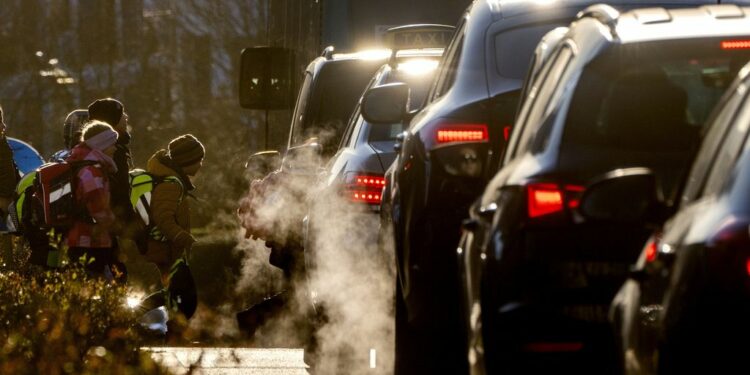Related
De Vries denied the industry had been slow to act. “Not even a year ago, this trajectory looked much more promising because, indeed, manufacturers have done their homework,” she said. “They’ve invested over €250 billion into electrification – the vehicles, again, are not the bottleneck: it’s the market that is missing.”
This appears to be a reference to a manifesto ACEA published in June in which member companies committed to invest that sum by 2030, while calling for political support and a move “beyond an approach focusing on piling up regulations”.
But have carmakers been complacent, and used what until recently appeared to be steadily increasing sales of electric vehicles to balance the emissions of ever larger cars, with the gas-guzzling sports utility vehicle (SUV) now the norm rather than the exception?
“We’re not at the zero emission target yet…that’s still ten years away,” de Vries said. “So you have a transition to make and, you have to do that in a profitable way…in order to generate the revenues that you can use to make these investments.”
“And you have a market to reckon with,” she said, suggesting that carmakers are responding to consumer demand, and noting that a lot of advertising now focuses on electric models. “To be able to make this transformation work, you need to be able to produce and manufacture in a profitable way – ideally in Europe.”
While the larger part of the car industry appears to be suffering from regulatory fatigue – de Vries was wary of stricter targets being ushered in “through the back door”, for example in the form of deadlines for the electrification of corporate fleets, as called for by Uber last week.
Related
But the Commission is under pressure on more than one front. As well as preparing to propose a 90% economy-wide emissions cut by 2040, there is a vocal sector of industry urging the EU executive not a cave in to demands from the automotive lobby.
Fifty companies – including Uber, alongside IKEA, Polestar and its owner Volvo Cars – called today for EU lawmakers to stick to the 2035 target.
Volvo Cars quit ACEA in 2022 as it committed to produce only battery powered vehicles by 2030, but backpedalled this month, saying it now plans to ensure that at least nine out of every ten cars it sells will be either fully electric or plug-in hybrid models by the end of the decade.
One way or another, Europe’s car industry looks set to face some critical choices in the coming months and years, as the EU will inevitably have to ratchet up its climate action in line with the imminent new greenhouse gas reduction target.
This – as climate commissioner Wopke Hoekstra has intimated – is likely to go beyond the substitution (electric for petrol, boiler for heat pump) approach seen so far to a rethink of lifestyles and consumption models.
De Vries said the industry was not working on the assumption that car sharing and a switch to alternative forms of transport, especially in cities, would necessarily mean a further fall in demand for new cars.
“There is often not a one-size-fits-all solution for mobility,” de Vries said. “Looking into the services and the business opportunities that are there, it’s not a worry about fewer cars…that drives us,” she said. “We believe mobility, including car use will [continue] to play an important role.”
Source link : http://www.bing.com/news/apiclick.aspx?ref=FexRss&aid=&tid=66fbd62753de4fcd96e234b596d26de6&url=https%3A%2F%2Fuk.news.yahoo.com%2Fwhy-carmakers-pleading-respite-eu-084245837.html&c=15107818546763810387&mkt=de-de
Author :
Publish date : 2024-09-30 18:42:00
Copyright for syndicated content belongs to the linked Source.



